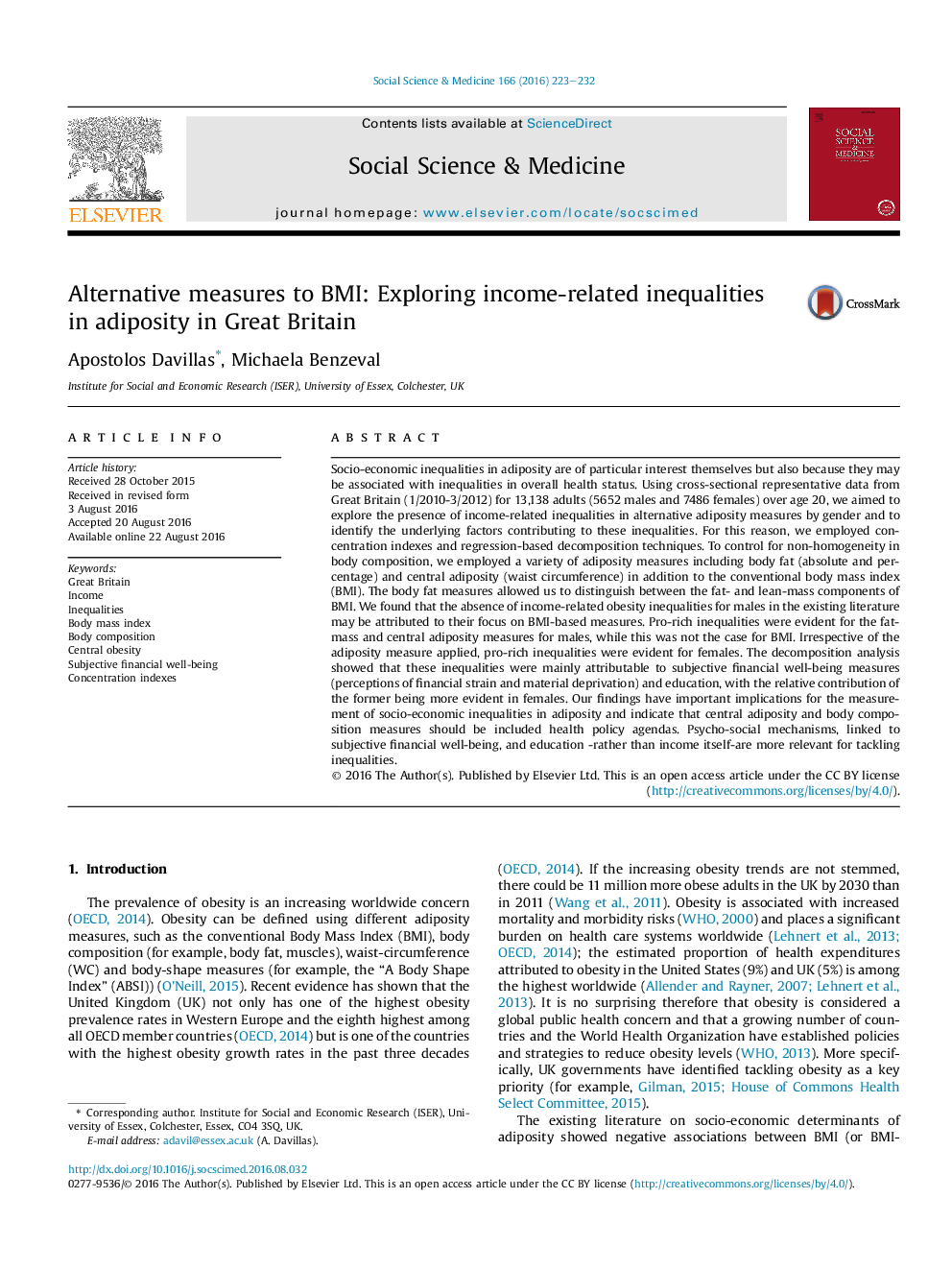| کد مقاله | کد نشریه | سال انتشار | مقاله انگلیسی | نسخه تمام متن |
|---|---|---|---|---|
| 7329315 | 1476003 | 2016 | 10 صفحه PDF | دانلود رایگان |
عنوان انگلیسی مقاله ISI
Alternative measures to BMI: Exploring income-related inequalities in adiposity in Great Britain
دانلود مقاله + سفارش ترجمه
دانلود مقاله ISI انگلیسی
رایگان برای ایرانیان
کلمات کلیدی
موضوعات مرتبط
علوم پزشکی و سلامت
پزشکی و دندانپزشکی
سیاست های بهداشت و سلامت عمومی
پیش نمایش صفحه اول مقاله

چکیده انگلیسی
Socio-economic inequalities in adiposity are of particular interest themselves but also because they may be associated with inequalities in overall health status. Using cross-sectional representative data from Great Britain (1/2010-3/2012) for 13,138 adults (5652 males and 7486 females) over age 20, we aimed to explore the presence of income-related inequalities in alternative adiposity measures by gender and to identify the underlying factors contributing to these inequalities. For this reason, we employed concentration indexes and regression-based decomposition techniques. To control for non-homogeneity in body composition, we employed a variety of adiposity measures including body fat (absolute and percentage) and central adiposity (waist circumference) in addition to the conventional body mass index (BMI). The body fat measures allowed us to distinguish between the fat- and lean-mass components of BMI. We found that the absence of income-related obesity inequalities for males in the existing literature may be attributed to their focus on BMI-based measures. Pro-rich inequalities were evident for the fat-mass and central adiposity measures for males, while this was not the case for BMI. Irrespective of the adiposity measure applied, pro-rich inequalities were evident for females. The decomposition analysis showed that these inequalities were mainly attributable to subjective financial well-being measures (perceptions of financial strain and material deprivation) and education, with the relative contribution of the former being more evident in females. Our findings have important implications for the measurement of socio-economic inequalities in adiposity and indicate that central adiposity and body composition measures should be included health policy agendas. Psycho-social mechanisms, linked to subjective financial well-being, and education -rather than income itself-are more relevant for tackling inequalities.
ناشر
Database: Elsevier - ScienceDirect (ساینس دایرکت)
Journal: Social Science & Medicine - Volume 166, October 2016, Pages 223-232
Journal: Social Science & Medicine - Volume 166, October 2016, Pages 223-232
نویسندگان
Apostolos Davillas, Michaela Benzeval,